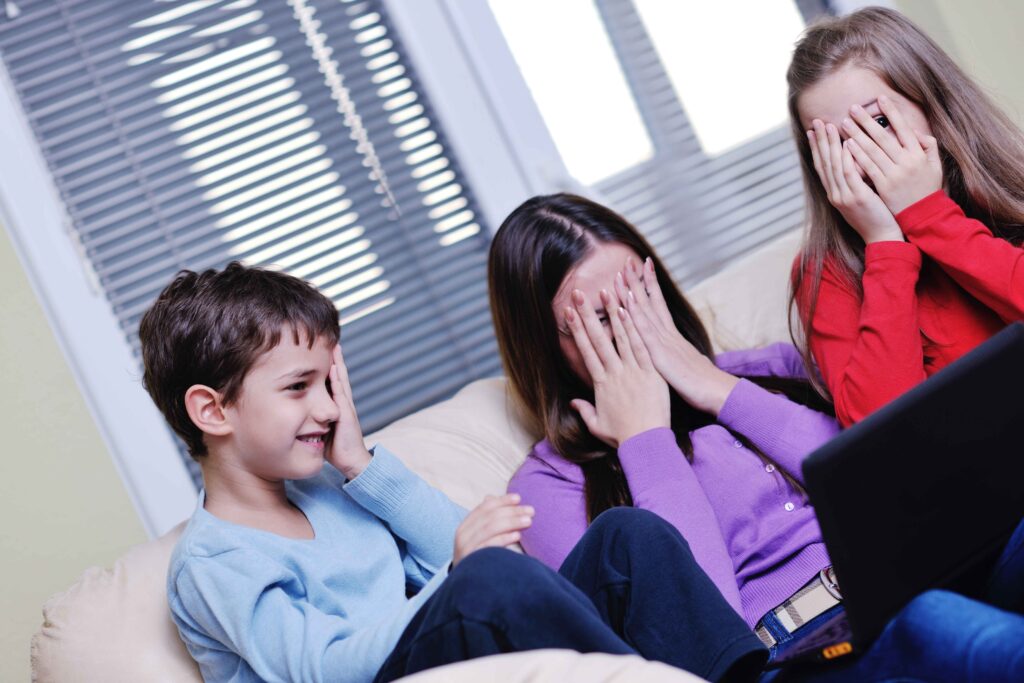Likes, Shares & Safety Snares: A Parent’s Guide to Social Media
- Parenting
- |March 17, 2024

Social media has become an indispensable part of every individual. These platforms provide a world of exploration, entertainment, and connection for kids. On the other hand, parents may find it difficult to guide their children through the social media maze. Concerns around appropriate content, impact on child development, and online safety are never-ending. The question that arises is, how can we achieve an equilibrium? Is there a perfect guide related to social media for parents.
This article aims to examine the world of children’s social media utilization and suggest strategies that enable parents to efficiently regulate it.

The Allure of Likes and Feeds: Why Social Media Appeals to Children
For children, social media has its own special charms and a few noticeable ones are listed below:
Exploring Identity and Expressing Oneself:
Social media gives children a voice, an audience, and a way to express themselves creatively, voice their thoughts, and learn about themselves as they grow up. They can create their own online personalities and experiment with various methods of expressing themselves.
Information and Entertainment:
Social media provides an endless supply of entertaining, educational, and interesting content. Videos, games, news, and instructional materials are all easily accessible to children.
A Sense of Belonging and Connection:
Children can find new friends, relatives, and even strangers with similar interests through social media. In the midst of teenage years, a feeling of community and belonging might take on added significance.
Potential Risks of Social Media for Children
While social media provides numerous benefits, it also poses possible risks. Below are few possible adverse impacts of social media on children:
Exposure to inappropriate content:
The internet is extensive and unfiltered. Children may encounter stuff that is violent, sexually provocative, or simply not age appropriate. For them, this may be perplexing or even unsettling.

Online Harassment and Cyberbullying:
Online anonymity might encourage bullying behavior. Children can be subjected to unpleasant words, exclusion, or even threats, making them feel alienated and upset.
Privacy Concerns:
Youngsters might not be entirely aware of the consequences of disclosing information online. Oversharing photographs or personal information can have immediate and long-term effects on safety and privacy.
Issues associated with Body Image and Social Comparison:
Excessively photoshopped images and exaggerated depictions of idealized beauty are common on social media. Constant exposure to this idealized world might cause youngsters to struggle with body image and social comparison, lowering their self-esteem.
Addiction and Screen Time Issues:
Users are kept hooked on social networking sites by endless scrolling, likes, and notifications, which are designed to keep them engaged. This may result in an excessive amount of time spent in front of screens, leaving out other crucial activities like sleep, exercise, and in-person social connection.
A Guide for Parents: Proper and Secure Social Media Usage
As parents, we should teach our children how to use social media in a responsible and safe manner. Following are a few strategies to consider:
Open communication is essential:
Engage your child in candid discussions about social media even before they are old enough to have their own accounts. Discuss the advantages and disadvantages, expectations, and appropriate online activity.
Discuss Privacy and Oversharing:
Discuss with your child the permanency of internet content. Bear in mind that their online content may be viewed by a substantial audience, which may include prospective employers or academic institutions.
Have a Conversation About Cyberbullying:
Describe what it is and give your kids the confidence to come to you for support if they come across it online. Promote the reporting of offensive content and the blocking of users who act negatively.
Co-create Accounts and Explore Together:
If you think your child is mature enough to use social media, you may want to consider about opening an account together. Assist them in selecting suitable usernames and profile images, understanding privacy settings, and navigating the platform.
Age-appropriate Guidelines:
Age limitations are in place on majority of the social media platforms for a purpose. Follow these recommendations and think about holding off on giving your child access until they are mature enough to manage the internet responsibly.
Promote Positive Interactions on the Internet:
Educate children to follow accounts that are inspirational and positive. Assist them in creating a feed that highlights creative expression, healthy hobbies, and positive role models.
Parent – A Role Model:
Your online conduct serves as a model for your youngster. Be careful what you post, communicate responsibly online, and strike a good balance between screen time and offline activities.
“Friend” Your Kid (With Their Permission):
This lets you keep an eye on their activities without bothering them. But be considerate of their privacy and keep lines of communication open regarding boundaries.

Conclusion
Parents in the digital age face a variety of difficulties due to social media, including unrealistic expectations, excessive screen time, issues about cyberbullying, and skewed reality perceptions. However, parents can effectively handle the problems posed by social media and create a healthy and balanced digital environment for their families by using tactics like practicing self-compassion, setting boundaries, encouraging open communication, and boosting critical thinking abilities. Finally, parents can effectively and resiliently manage the challenges of parenthood in the social media era by placing a high value on authentic communication and meaningful connection.
Thrive, not just survive: FIYOCA is your companion for parenting
Share:

Empowering you to heal, grow, and achieve a balance!
By signing up, you agree to our Privacy Policy




